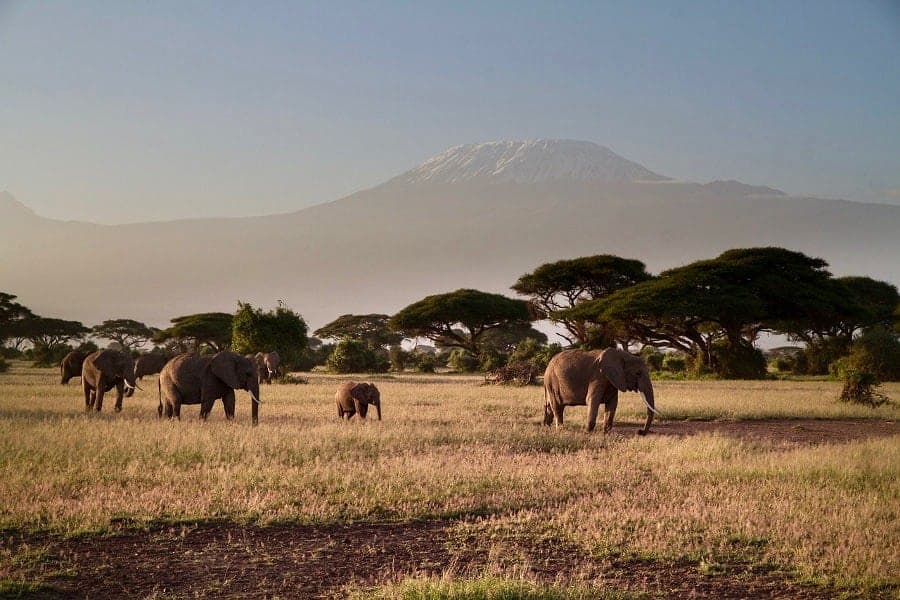
Elephants walk past the camp at sunrise. A herd of zebra skips around the river below. Hyenas cackle until a resonant lion roar echoes through the trees. This is African safari, an evocative immersion in the wild world, an intimate insight into a wilderness that hasn’t been tamed.
The best way to think about it is to consider the etymology of safari. It’s a Swahili word meaning “journey” and journey is the only adequate descriptive for the experience.
It’s a journey that connects you with your wild side, an experience that can only be understood after you’ve taken the plunge and visited Africa’s wildernesses.
What Makes Safari So Special
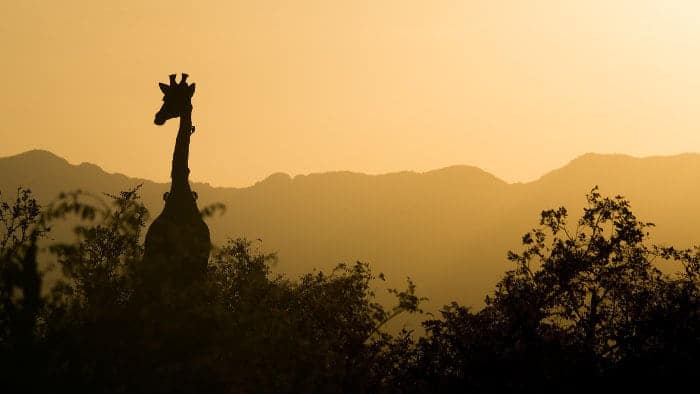
Africa and African safari are usually too challenging to preconceive. If you’ve been to Paris you can make a guess as to what Rome looks like. But it doesn’t matter how many wildlife documentaries you’ve seen, nothing can prepare for the feeling that exists in Africa’s great wildernesses.
A zoo is where a handful of animals are caged for the enjoyment of thousands of visitors. A safari is where you’re invited into the wildlife world, where you are amongst a handful of visitors admiring hundreds of thousands of wild animals.
Visit a zoo and you’ll see animals, perhaps even get a selfie with them. Go on a safari and the experience can’t be encapsulated in a single moment.
Every day brings an incalculable number of scenes and impressions: baboons shouting, leopard stalking, antelope grazing, buffalo charging, giraffe turned to silhouette at sunset.
So trying to compare a safari to a zoo is like confusing Paris’ Louvre with an elementary school art exhibition: sure, both are art, but they’re not the same.
Embracing the Immersion and Intimacy
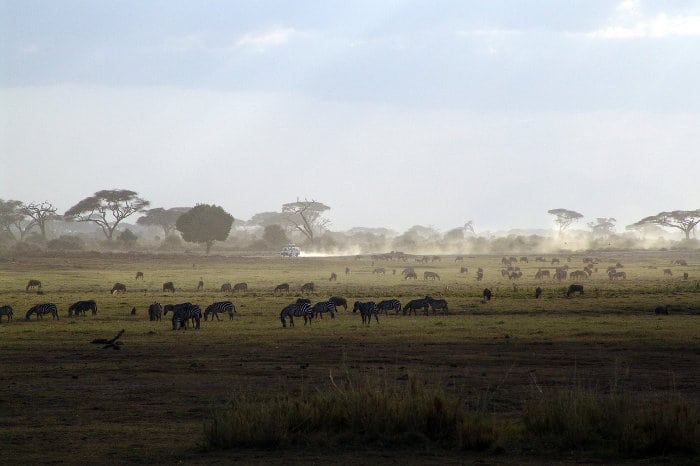
With an African safari you are completely immersed in the wilderness and the wildlife world. Through game drives and other activities you will really explore, but the experience is 24-7. Nature sings a daily lullaby, exotic smells guide your journey, and you can be in awe of the landscapes even when there are no animals in the vista.
At a zoo you’re on the outside looking in. With a safari you’re in the heart of it all, surrounded in 360 degrees of wildlife drama. Seeing animals in their natural habitat is one part of the experience; waking up in the wild is another experience entirely.
This immersion is complemented by intimacy. You get close enough to hear the crunch of lions ripping apart a zebra carcass; glances are shared as an elephant bull looks you up and down; an endangered white rhino seems almost close enough to touch.
Often there is so much going on that everyone gets a different experience in the same place. For example, come across a herd of 2000 zebra and there are many micro scenes to find, not including a lone leopard hiding in the grass nearby.
Experiencing Both the Scale and the Detail
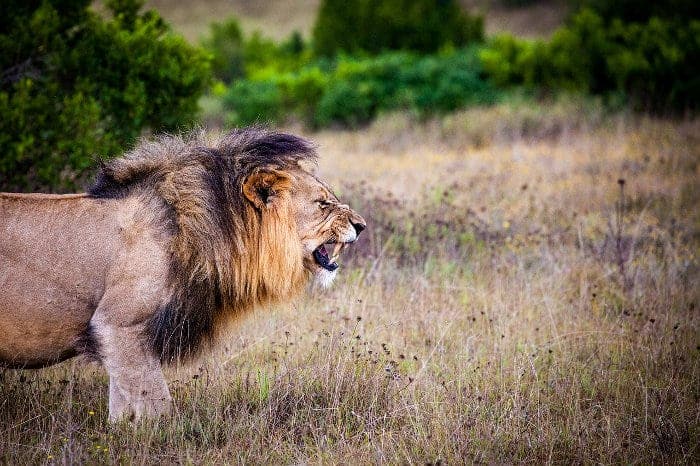
On a first-time safari it’s impossible to ignore the call of specific animals. You want to see lions, leopards, elephants, and all the famous characters endemic to Africa. There’s the big five of course and they’re often high on the list.
At first you’re enjoying redolent snapshots of single animals, taking in all the details on a micro level: a baby elephant chasing a warthog, a lion’s mane, hippos yawning in the water. The level of detail is remarkable and after the first two hours you’ll realise that there is always something new when you look the other way.
Even the smallest private game reserves are on a baffling scale. Some of the big national parks and reserves are larger than most European countries! Such enormous wildernesses provide home for huge animal populations.
Witnessing an elephant is a special experience; around 100,000 elephants can be seen in Botswana’s Chobe National Park. It can take three days just to cross Tanzania’s Serengeti, which is home to more than 2 million wild animals.
It’s this mix of scale and detail that has people coming back year after year for a safari.
But Really, What is an African Safari?
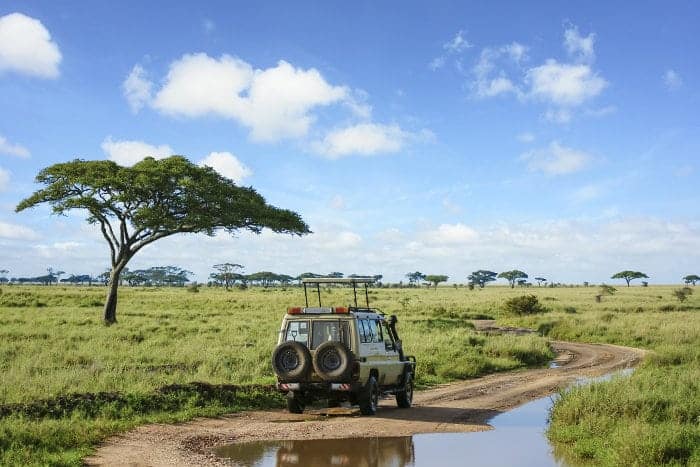
Safari isn’t just going to Africa to see some animals. It’s an opportunity to connect with your wild side and experience the natural world as it really is. But all that’s to come.
Where do you start when there are hundreds of different safari destinations and many distinctive ways to discover the landscape?
Although it’s possible to go on a half or full-day safari, especially if you’re staying in Cape Town, at Africa Freak we always recommend a multi-day safari experience. You’ll see more, feel more, and get a deeper sense of the wild world.
On a typical multi-day safari you’ll enjoy two specific activities each day, which usually maximise the times when animals are most active: early morning and late afternoon. There could be other activities after dark as well, or in big parks like the Masai Mara or Kruger you may spend the whole day exploring.
For the rest of the time you are still on safari. Even at the lodge or camp you’ll be listening to and watching the animals. In most destinations it’s worth the trip just to feel the landscape, before you even set eyes on any of its four-legged inhabitants.
Safari is a Journey
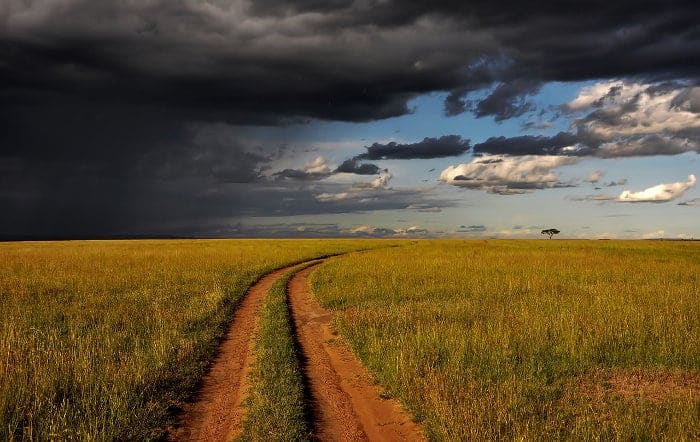
On a multi-day safari you’ll start to understand why safari is such a strong Swahili word. Safari really will take you on a journey as it helps to open up your wild side. With two or three days you can fully explore a single park or reserve, but we’d recommend much longer.
Every safari destination is different, with contrasting landscapes, animals and scenes. Spend a week and you could visit three or four different parks, building a more complete picture of Africa’s wild world.
Hey, if it was up to us we’d spend our whole lives on safari, experiencing all the beauty of the world’s final animal strongholds.
Just by reading this you’ve started the journey and we encourage you to continue. That wild side is ticking within you and there’s never a better time than now to start exploring. Remember, Africa is an enormous continent of 54 countries and over 1000 languages.
Every destination is a little different and suited to a different kind of visitor; you could have a private plunge pool overlooking the herds or a mobile camp hundreds of miles from civilization; for some, safari is sitting back and watching the wildlife roam past, while others want to be out discovering at all times of the day.
So explore the WHERE and learn about Africa’s safari destinations.
Read about WHEN to go on safari to maximise your experience.
Learn about WHO you’re going to meet on the journey, from communities and cultures to all the animals.
Discover HOW a safari day unfolds and get practical tips on making your safari an even better success.
See WHY safari is so important for conservation and self discovery.